Never would I have imagined spending a week in Dakar, the capital of Senegal, to get to know Alessandro Merlo well. He’s a chef from Acqui Terme (Alessandria, Piedmont) and the owner of a business that he first conceived about eight years ago and then launched in 2016. The first step was a restaurant in a completely different location, six employees in all, plus him and his wife, Souadov Niang, Senegalese. A total of eight.

Between Milan and Dakar, there are 4400 kilometres, flying over the Mediterranean Sea, Algeria and a desert that is the negation of human life. But which exudes a hypnotic charm
Today, that little place employs 62 people. It is almost at the extreme tip of the peninsula that, to the north of the historic centre, juts out into the Atlantic, the westernmost point of the whole of Africa. The latter easily may seem as a curious detail. Instead, it has enormous historical-economic value as a centuries-old reference point for ocean routes, between the two hemispheres and between Africa and the Americas, including the slave trade.
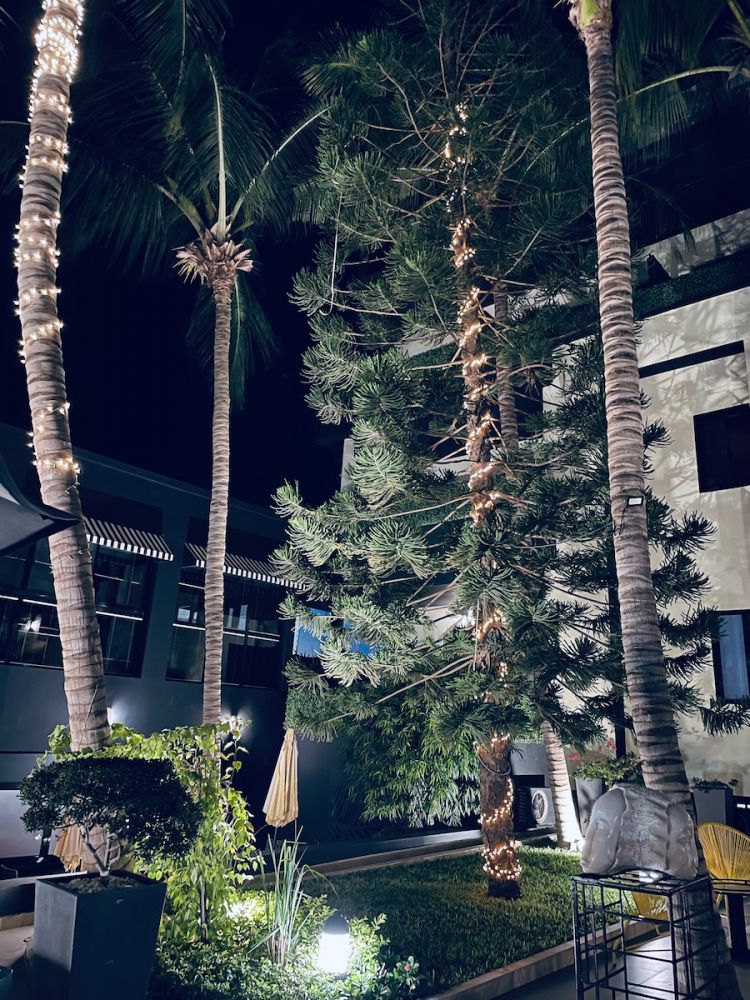
Palms, a garden of palm trees in Dakar. It is no coincidence that Alessandro Merlo's boutique hotel is called The Palms
What brought me here is linked, in the choice of period, to the
Week of Italian Cuisine in the World, 8
th edition, the first in 2016 in the wake Expo Milano, the same year that saw the birth of the
Ambasciatori del Gusto association. And
Merlo has just signed up to strengthen his professional ties with Italy, which go beyond important raw materials from the motherland.
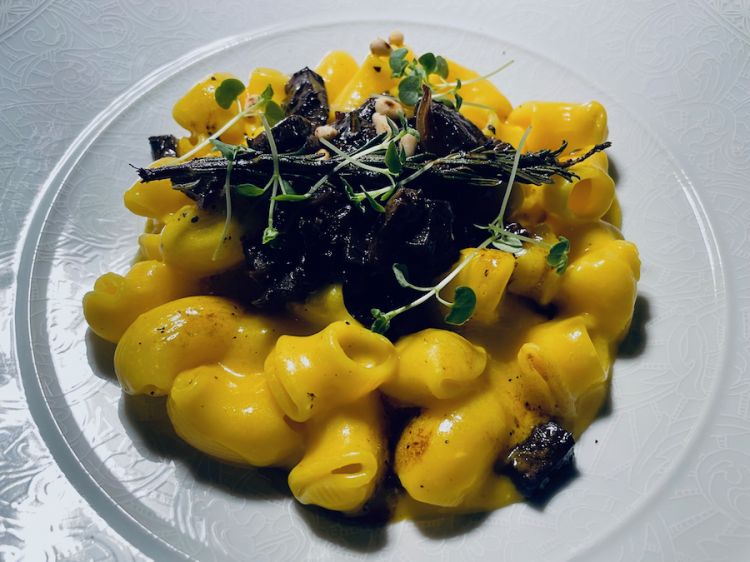
Felicetti chiocciole, risotto with saffron, Venetian-style liver, chef Alessandro Merlo in Dakar
The appointment is for Saturday 18th, late in the afternoon, in the garden of an establishment called
The Palms. Around the green garden there are a boutique hotel with twenty rooms, a bistro bar called
Noliane Caffé,
Ella's wine bar and the restaurant, called
Noliane, after their first-born. Ella instead refers to her sister, they are 13 and 6 years old, and the wine list combines Italy and France, because here the French have left a deep mark, in the language among other things but less so in the cuisine. This is because local wealth and gastronomic tourism that would stimulate the demand for fine dining have not yet developed. Should the government ever decide to promote the Michelin firmament, it will certainly not be within a few years, no matter how crucial tourism is as an industry.
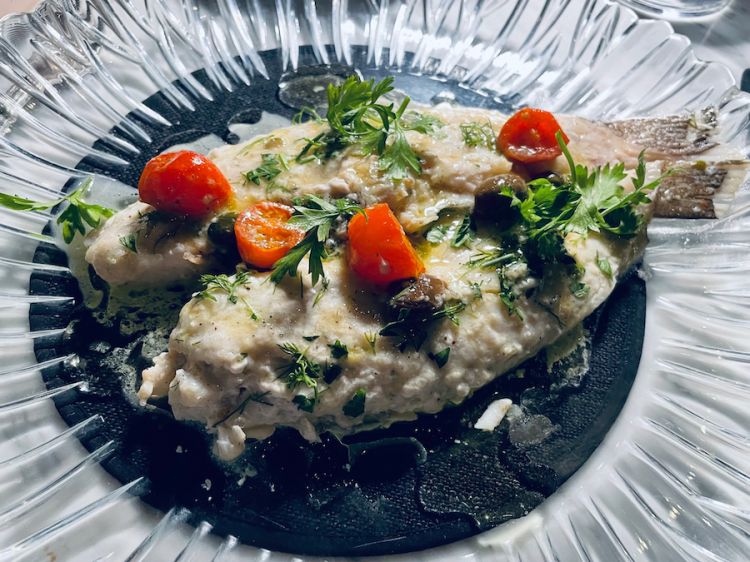
Thiof alla ligure. Alessandro Merlo serves it with Spaghetti aglio, olio e peperoncino
Alessandro Merlo, born in November 1974, arrived here after many assignments, and the first ones did not see him in the kitchen: 'I was born in Acqui Terme to a baker (my father) and a pastry chef (my mother). I attended catering school with a sincere interest in wine, so much so that I started as a sommelier in England, then Los Angeles, seven years at Piero Selvaggio's Valentino, then I moved to the other coast and spent four years in New York at Essex House, then a five-year stint in Paris with short internships in Tokyo, Barcelona and Bergamo, at Da Vittorio, and then Africa'.
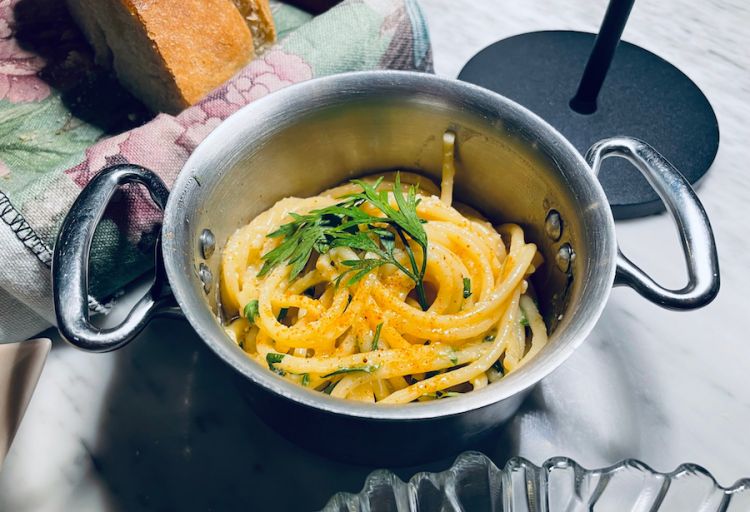
Spaghetti aglio, olio e peperoncino at the Noliane restaurant
The reason is immediately clear: 'My wife is Senegalese and has always worked in the US, at the Ritz chain, while I, having started out as a sommelier, was eventually bewitched by the kitchen. By the way, in several establishments, all the staff in the dining room and cellar had to work at the cooker one day a week to get the full picture. At one point, we asked ourselves where we’d live in the future, and the answer was Dakar, a part of the world where one is a bit forgotten, which spurs us on to making it and making us known. '
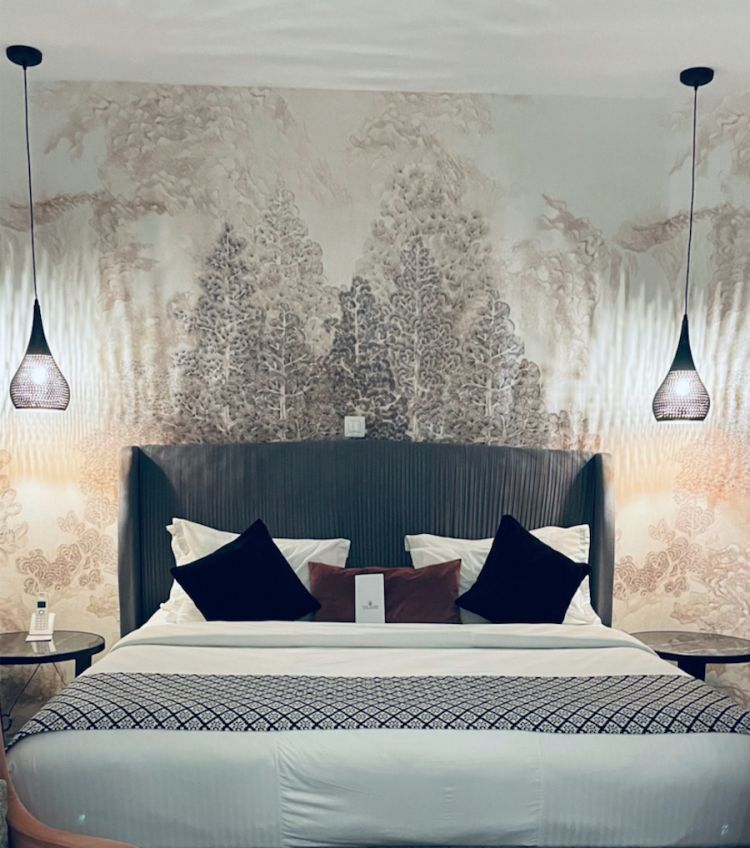
A room at The Palms boutique hotel in Dakar
Human factor and respect are fundamental here. All of them, Merlo reminds me talking about the restaurant staff, started out as dishwashers and then grew. Zero professionals, they gradually became cooks, bartenders, pastry chefs, pizza makers, waiters. 'I am proud I have given them an opportunity that has changed their lives and that of their family. Now they master a trade, and in Africa the relationships like the problems and the reality are quite different than in Italy.'
1. To be continued
Translated into English by Slawka G. Scarso